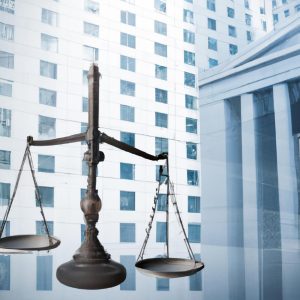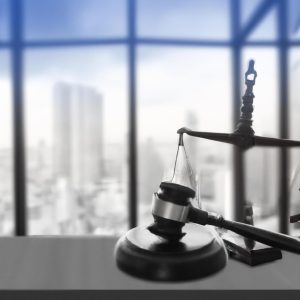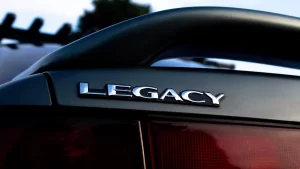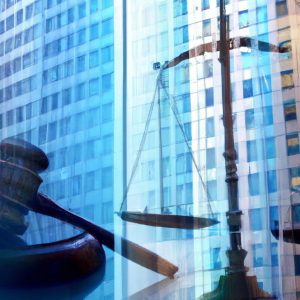In the intricate tapestry of estate planning, the role of a backup executor of will stands as a crucial pillar. At Morgan Legal Group, nestled in the bustling heart of New York City, our seasoned team of attorneys navigates the labyrinthine laws surrounding Wills and trusts with finesse and acumen. Join us as we delve into the pivotal responsibilities and obligations of a backup executor of will, shedding light on the intricacies of this enigmatic role in the realm of estate administration.
Key Considerations for Choosing a Backup Executor of Will
When choosing a backup executor of a will, there are several key considerations to keep in mind to ensure that your estate is properly handled in the event that your primary executor is unable to fulfill their duties. One important factor to consider is the backup executor’s availability and willingness to serve in this role. It is crucial to select someone who is responsible and organized, as the role of an executor involves managing various aspects of the estate, including distributing assets to beneficiaries and handling any outstanding debts or taxes.
Additionally, it is important to choose a backup executor who has a good understanding of estate planning laws and regulations. This individual should be familiar with the legal requirements surrounding the execution of a will and be able to navigate any complexities that may arise during the probate process. It is also recommended to select someone who is trustworthy and has a good relationship with the beneficiaries named in the will, as this will help ensure a smooth and efficient distribution of assets. Ultimately, selecting the right backup executor is a crucial decision that should not be taken lightly, as they will play a significant role in carrying out your final wishes.
Responsibilities of a Backup Executor in Estate Administration
As the backup executor of a will, it is crucial to understand your responsibilities in estate administration. Your role may come into play if the primary executor is unable or unwilling to fulfill their duties. Here are some key duties that you may be required to undertake:
- **Reviewing the Will:** Ensure you have a clear understanding of the deceased’s wishes as outlined in the will.
- **Probate Process:** Assist in the probate process, which involves validating the will, inventorying assets, paying debts, and distributing assets to beneficiaries.
- **Communicating with Beneficiaries:** Keep beneficiaries informed of the estate administration process and any updates regarding their inheritance.
In addition to the above responsibilities, the backup executor may also be required to:
- **Handling Financial Matters:** Manage the deceased’s financial accounts and assets, including paying bills and taxes.
- **Resolving Disputes:** Mediate any disputes that may arise among beneficiaries or other parties involved in the estate.
- **Closing the Estate:** Oversee the final distribution of assets, obtain receipts from beneficiaries, and file the necessary paperwork to close the estate.
Ensuring Smooth Transitions: Strategies for Succession Planning
When it comes to ensuring the smooth transitions of wealth and assets through succession planning, having a backup executor of the will is a critical component. This individual acts as a failsafe in case the primary executor is unable or unwilling to fulfill their duties. By appointing a backup executor, you can avoid potential delays and complications in the execution of the will.
When selecting a backup executor, it is important to choose someone who is trustworthy, organized, and capable of handling the responsibilities that come with the role. Communicate with both the primary and backup executors to ensure they are aware of their duties and have access to all necessary information. By taking these proactive steps, you can help ensure a seamless transition of assets and minimize the likelihood of disputes arising during the probate process. Trust our team at Morgan Legal Group in New York City to guide you through the intricacies of succession planning and help you select the right individuals to serve as executors of your will.
The Importance of Clear Communication and Documentation in Naming a Backup Executor
When it comes to creating a will, one of the most crucial decisions you will make is choosing an executor to carry out your final wishes. However, it is equally important to designate a backup executor in case your primary choice is unable or unwilling to fulfill the role. Clear communication and documentation are key in ensuring that your wishes are carried out smoothly and efficiently.
By clearly outlining your choices for both a primary and backup executor in your will, you can avoid confusion and potential conflicts among your beneficiaries. It is essential to discuss your decisions with both individuals and obtain their consent before finalizing your documents. Additionally, keeping detailed records of these discussions and decisions will provide clarity and guidance for your loved ones during a difficult time.
Q&A
Q: What is a backup executor of a will?
A: A backup executor of a will is someone appointed to step in and carry out the instructions outlined in a will if the primary executor is unable to fulfill their duties.
Q: Why is it important to have a backup executor?
A: Having a backup executor is important to ensure that the wishes of the deceased are still carried out in the event that the primary executor is unable to act. This helps to avoid any delays or complications in the execution of the will.
Q: How is a backup executor chosen?
A: The backup executor is typically chosen by the person creating the will, along with the primary executor. It is important to choose someone who is responsible, trustworthy, and willing to take on the role if needed.
Q: Can the backup executor also be a beneficiary of the will?
A: Yes, the backup executor can also be a beneficiary of the will. However, it is important to consider any potential conflicts of interest that may arise and to choose someone who can impartially carry out their duties.
Q: What are the responsibilities of a backup executor?
A: The responsibilities of a backup executor are similar to those of the primary executor and include collecting and distributing assets, paying debts and taxes, and ensuring that the wishes of the deceased are carried out according to the terms of the will.
Wrapping Up
In conclusion, having a backup executor for your will is a crucial step in ensuring that your final wishes are carried out smoothly and efficiently. By designating a trusted individual to step in if your primary executor is unable to fulfill their duties, you can provide peace of mind for yourself and your loved ones. Remember, thoughtful planning now can prevent complications down the road and help ensure that your legacy is honored as you intended. Thank you for reading.






